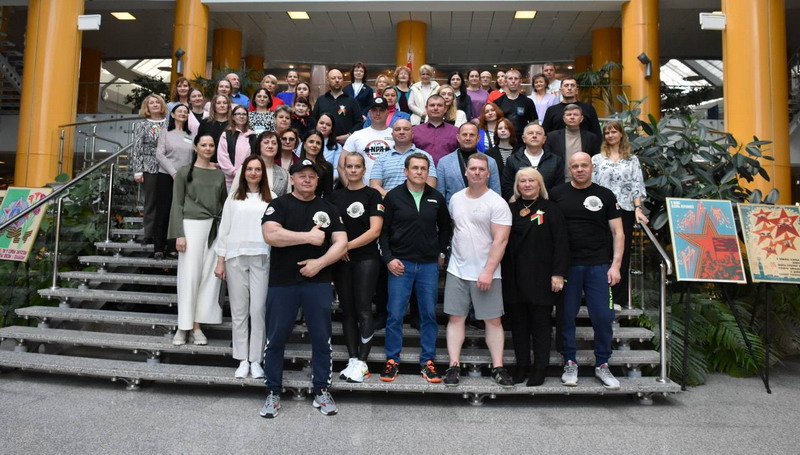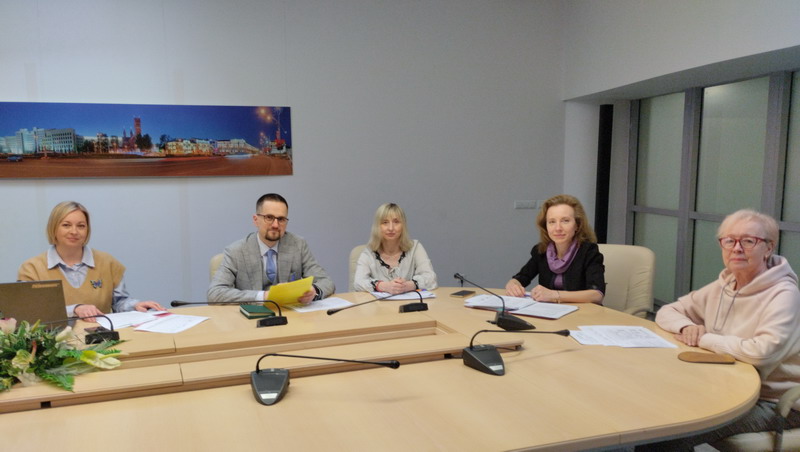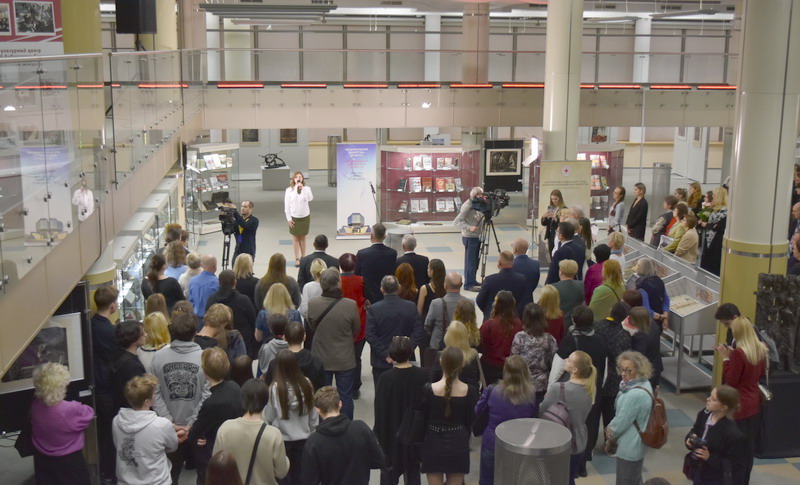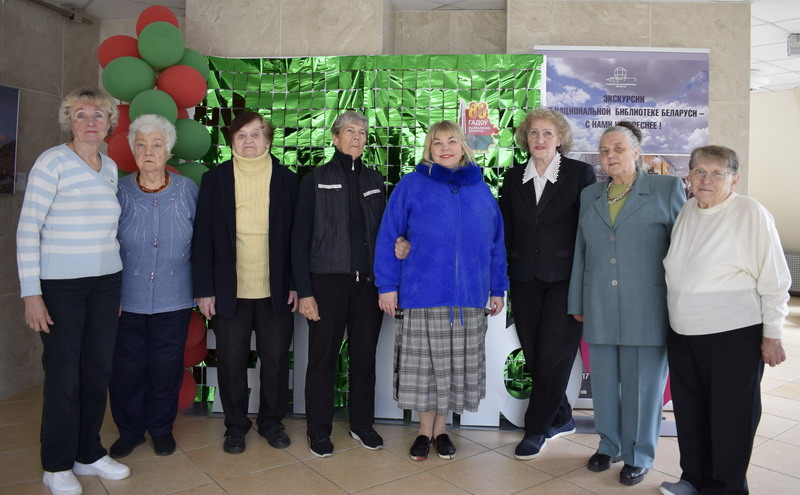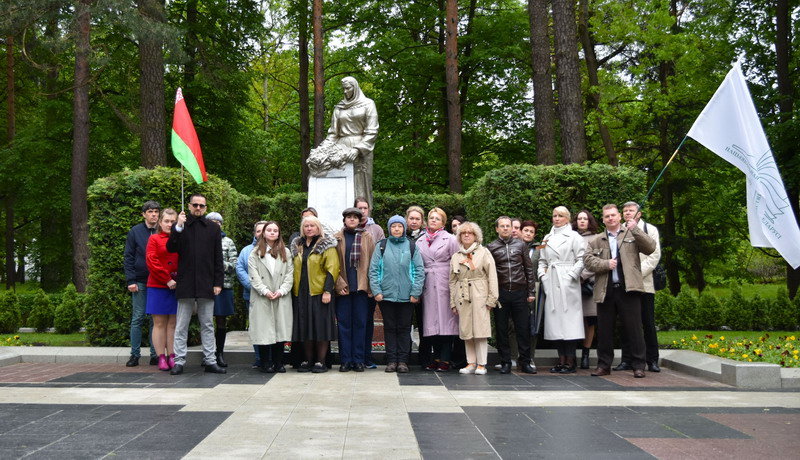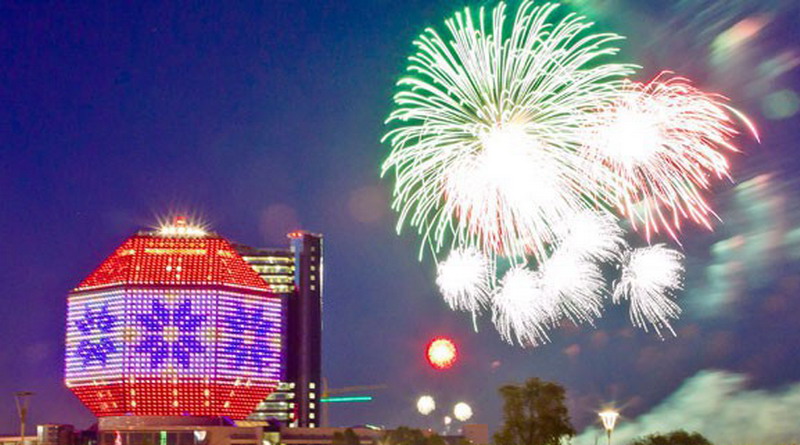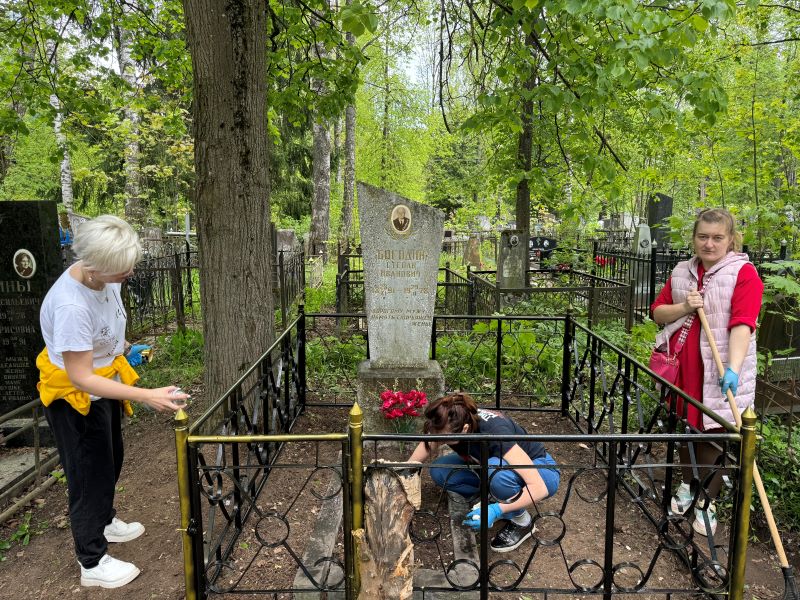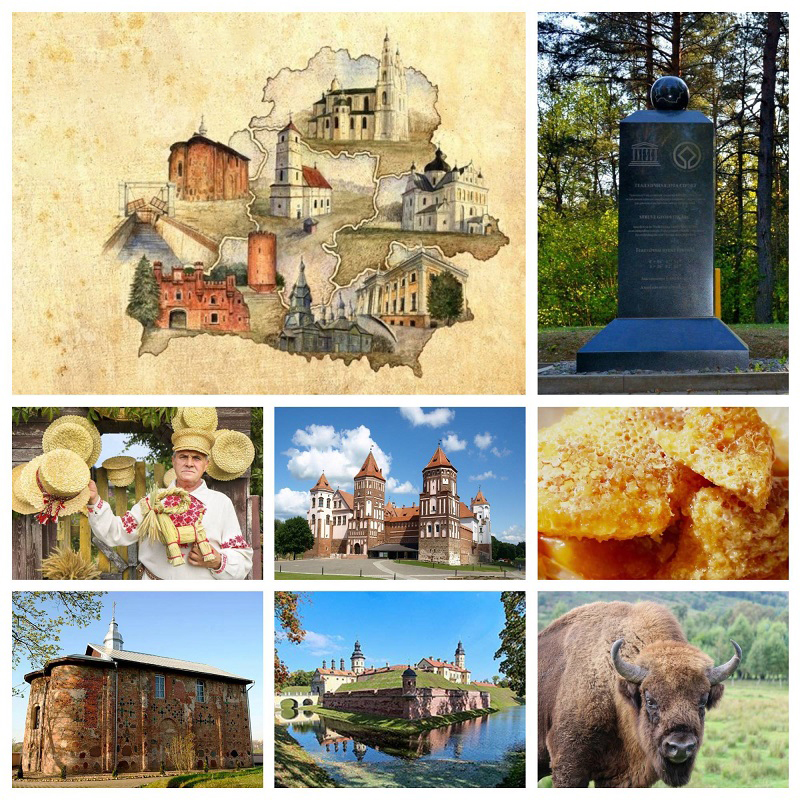April 4 marks the 210th anniversary of the birth of Joseph Antonovich Goshkevich (1814–1875), a researcher of the Far East, linguist, naturalist, and the first Russian consul in Japan.
Joseph Antonovich Goshkevich was born in Rechitsky district of Minsk province (now Khoinik district of Gomel region) in the family of a priest. Joseph's father, Anthony Gashkevich, was the rector of St. Michael's Church in Strelichev, and was friends with Ioann Grigorovich.
After graduating from the parish school, Joseph A. Goshkevich continued his education at the Minsk Theological Seminary. Among the two best graduates, he was sent to study at the St. Petersburg Theological Academy, from which he graduated in 1839. He received the title of Master of theology, but did not accept the priesthood. As an interpreter, he was enrolled in the Russian Ecclesiastical Mission in Beijing.
During his time in Beijing (1839–1849) Joseph Antonovich studied Chinese, Manchurian, Korean, Mongolian languages, got acquainted with the art and architectural monuments of China. He was engaged in astronomical and meteorological observations, and sent reports to the Main Astronomical Observatory in St. Petersburg. In addition, he researched the ethnography and nature of China, collected a unique collection of insects (kept in the Zoological Museum of the Zoological Institute of the Russian Academy of Sciences).
He published the results of his work in scientific collections. The first volume of the fundamental research "Works of members of the Russian Ecclesiastical Mission in Beijing" contains his article "The method of preparing mascara, whitewash and blush for the Chinese." For his diplomatic activities in China, Joseph Goshkevich was awarded the Order of St. Nicholas, Stanislav III degree.
In 1852, Joseph Antonovich Goshkevich, on the frigate Pallada, as an interpreter and adviser as part of the diplomatic expedition of Admiral E.V. Putyatin, set off on a trip around the world. It is beautifully written about him in the book "Frigate Pallada" by Joseph Goncharov, a famous Russian writer, a participant of the expedition. They visited England, some African countries, China, Japan. In 1855, Joseph Goshkevich was involved in the signing of the Treaty of Shimoda, the first diplomatic and trade agreement between Russia and Japan.
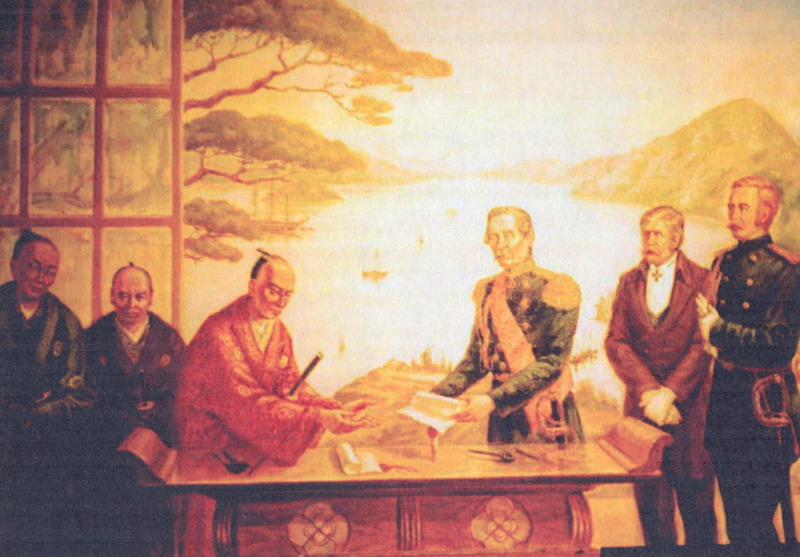
During his stay in Japan, he completed a large amount of research work, with the help of the Buddhist bonze Tachibana no Kaasai, he began to fulfill a long-held dream – to compile a "Russian-Japanese dictionary" (published in 1857, awarded the Order of St. Anna II degree, the Demidov Prize, the gold medal of the Imperial St. Petersburg Academy of Sciences.
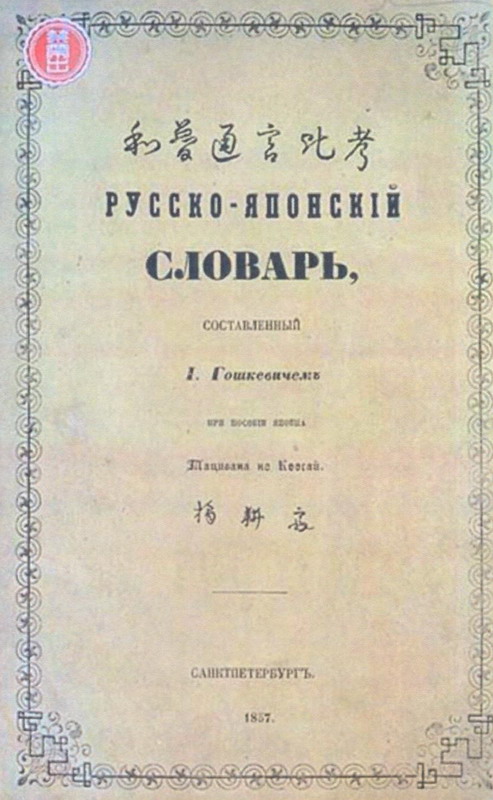
In 1858, J.A. Goshkevich was appointed the first Russian consul to Japan. His scientific, educational and diplomatic activities were aimed at introducing the Japanese to European culture: to acquaint them with the basics of fortification, navigation, shipbuilding, medicine, etc. One of the important tasks was to spread the Russian language in Japan. For this purpose, Russian schools were established in Hakadate (where the consulate was located) and in Nagasaki. Thanks to the efforts of the consul, the first Orthodox church in Japan was built, in which since 1861 the rector was the future Archbishop Nicholas of Japan. To this day, there is a school of photography founded by J.A. Goshkevich in the land of the rising sun.
J.A. Goshkevich returned to St. Petersburg in 1865. He served for some time in the Ministry of Foreign Affairs of the Russian Empire. When he retired, he lived in a small estate of Mali in the Vilna province (now Ostrovetsky district of the Grodno region), where he continued to study Oriental philology: he wrote a fundamental work "On the roots of the Japanese language" (published in Vilna in 1899).
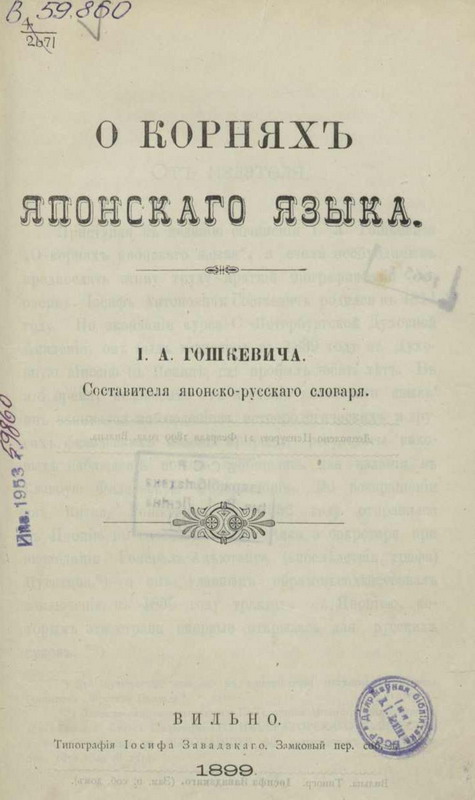
The scientist spent 20 years of his life in foreign countries. He left behind works on Japanese studies, collections and herbariums, a unique library including more than 1,340 woodcuts and old printed editions, 47 sheets of geographical maps, etc. J.A. Goshkevich's rich scientific heritage is kept in the funds of the Institute of Oriental Studies of the St. Petersburg branch of the Russian Academy of Sciences.
A monument was erected in memory of Joseph Antonovich in Hakodate, and a museum was created. His name is immortalized on the geographical map of the world: a bay in North Korea is named after the diplomat. In Belarus there are societies "Memory of J.A.Goshkevich", the Japanese-Belarusian-Russian foundation. A memorial sign has been installed in the village of Mali, a monument has been erected in Ostrovets, one of the streets of Minsk is named after him. The name of the famous son of Belarus was included in the UNESCO list of memorable dates for 2014–2015.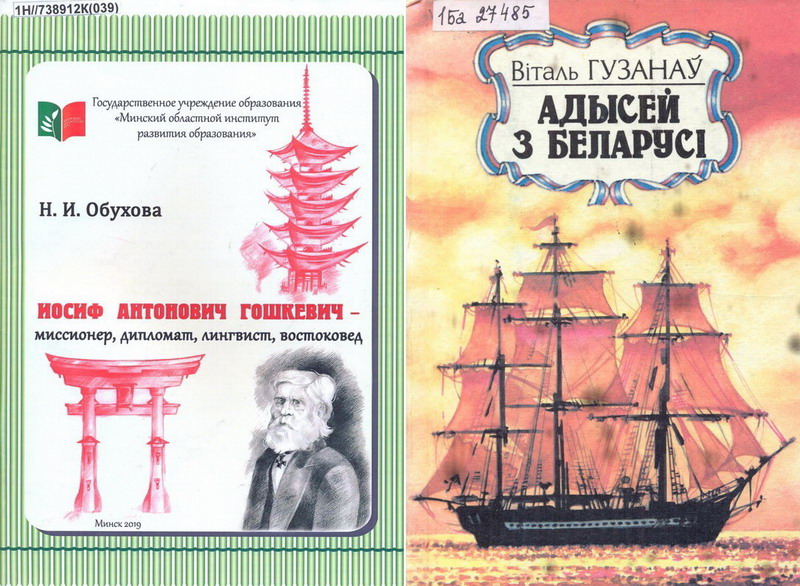
More information about the talented scientist can be found if you refer to the resources of the National Library of Belarus: the electronic catalog and the online encyclopedia "Belarus in persons and Events".
The material was prepared by the Research Department of Bibliography.


